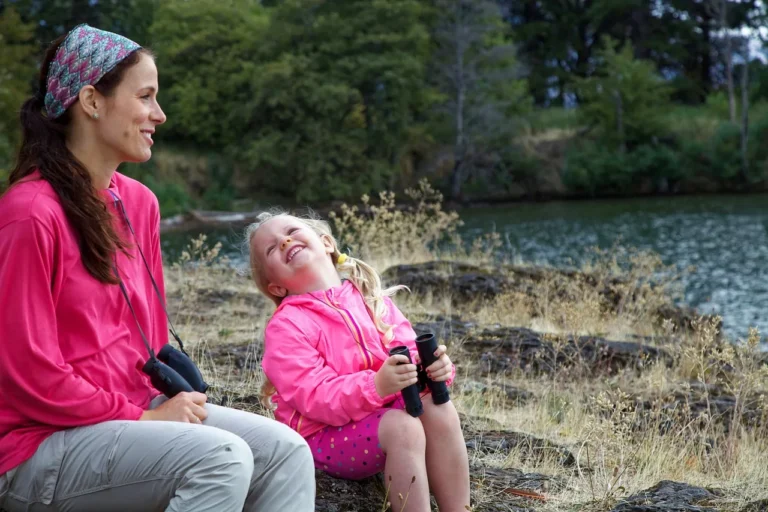Triple P Parenting: A Guide to Positive Parenting Strategies
Parenting is a journey filled with joy, love, and challenges. As parents, we all want to raise happy, confident, and well-behaved children. However, at times, we may find ourselves struggling with discipline issues, communication problems, and behavior management. This is where Triple P Parenting comes in, offering a proven framework to help parents navigate the ups and downs of parenting with confidence and success.
Table of Contents
Introduction to Triple P Parenting
Triple P Parenting, which stands for Positive Parenting Program, is a evidence-based parenting program developed by clinical psychologist Professor Matthew Sanders. It provides parents with a toolbox of effective strategies and techniques to promote their child’s social, emotional, and behavioral development. With Triple P, parents can learn how to create a positive and nurturing environment, set clear expectations, and manage challenging behaviors in a constructive way.
What is Triple P Parenting?
Triple P Parenting is a comprehensive approach to parenting that focuses on positive discipline, communication, and building strong parent-child relationships. It is based on the belief that children thrive when they are treated with respect, understanding, and consistency. Triple P offers a range of strategies that can be tailored to suit the needs of different families and parenting styles.
The Five Principles of Triple P Parenting
Positive Parenting
One of the core principles of Triple P Parenting is the promotion of positive parenting techniques. This involves using praise, rewards, and encouragement to reinforce desirable behaviors in children. By focusing on the positive aspects of their child’s behavior, parents can create a supportive and nurturing environment that fosters self-esteem and emotional well-being.
Consistency and Routine
Consistency and routine are vital in Triple P Parenting. By establishing clear rules, expectations, and boundaries, parents can provide a sense of structure and predictability for their children. Consistency helps children understand what is expected of them and reduces confusion and frustration.
Monitoring and Supervision
Triple P Parenting emphasizes the importance of monitoring and supervision. By keeping an eye on their child’s activities, parents can identify potential risks, prevent problem behaviors, and ensure the child’s safety. Regular monitoring also allows parents to provide guidance and support when needed.
Problem-Solving
Triple P Parenting encourages parents to develop problem-solving skills to address challenging behaviors effectively. By focusing on finding solutions rather than resorting to punishment, parents can teach their children valuable problem-solving skills and promote positive behavior.
Self-Care for Parents
Taking care of oneself is crucial in Triple P Parenting. Parents are encouraged to prioritize their own well-being, both physically and emotionally. By practicing self-care, parents can reduce stress levels, enhance their ability to cope with challenges, and be more present and responsive to their children’s needs.

Benefits of Triple P Parenting
Triple P Parenting has numerous benefits for both parents and children. By implementing the strategies and principles of Triple P, parents can:
- Improve their relationship with their children
- Enhance their parenting skills and confidence
- Reduce parental stress and frustration
- Promote positive behavior and emotional well-being in their children
- Manage challenging behaviors effectively
- Improve communication and active listening skills
- Create a nurturing and supportive family environment
How to Implement Triple P Parenting Strategies
Implementing Triple P Parenting strategies requires consistent effort and practice. Here are some key techniques that can help parents incorporate Triple P principles into their everyday parenting:
Communication and Active Listening
Effective communication is vital in Triple P Parenting. Parents should strive to establish open and honest communication channels with their children. Active listening, empathy, and understanding play crucial roles in fostering healthy parent-child relationships.
Setting Clear Rules and Boundaries
Clear rules and boundaries provide children with a sense of security and structure. Parents should communicate expectations clearly and consistently enforce boundaries to guide their children’s behavior. By setting limits, parents help children understand what is acceptable and what is not.
Encouraging Positive Behavior
Triple P Parenting encourages parents to catch their children being good and praise positive behavior. Acknowledging and reinforcing desirable behavior can motivate children to continue behaving in a positive manner. Positive reinforcement can be in the form of verbal praise, rewards, or privileges.
Managing Misbehavior
When faced with misbehavior, Triple P Parenting emphasizes the importance of remaining calm and addressing the behavior in a constructive way. Techniques such as time-out, logical consequences, and redirecting can be used to manage challenging behaviors effectively.
Building a Strong Parent-Child Relationship
Triple P Parenting emphasizes the significance of building a strong parent-child relationship based on trust, respect, and love. Spending quality time together, engaging in activities, and showing genuine interest in the child’s life can strengthen the bond between parent and child.

Triple P Parenting Tips for Different Age Groups
Triple P strategies can be adapted to meet the needs of children of different age groups. Here are some tips for implementing Triple P Parenting techniques at different stages of a child’s development:
Toddlers
- Establish a daily routine to provide structure and predictability.
- Use simple language and visuals to help toddlers understand rules and expectations.
- Encourage exploration and independence while ensuring a safe environment.
Preschoolers
- Foster independence by allowing preschoolers to make simple choices.
- Use positive reinforcement to encourage good behavior and address minor misbehaviors promptly.
- Teach problem-solving skills and encourage the use of words to express emotions.
School-Aged Children
- Involve school-aged children in rule-making and decision-making processes.
- Encourage responsibility by assigning age-appropriate chores and tasks.
- Foster open communication and actively listen to your child’s concerns and opinions.
Teenagers
- Respect their need for independence while providing guidance and support.
- Establish clear boundaries and expectations regarding behavior and responsibilities.
- Encourage open and honest communication and discuss important topics such as relationships, peer pressure, and substance abuse.
Common Challenges Faced by Parents and Triple P Solutions
Parents face various challenges throughout their parenting journey. Some common challenges include:
- Tantrums and challenging behavior
- Power struggles
- Communication difficulties
- Sibling rivalry
- Bedtime battles
Triple P Parenting offers solutions for these challenges by providing practical strategies and techniques to address specific issues. By utilizing Triple P resources, parents can gain valuable insights and implement effective strategies to overcome these challenges.
Success Stories and Testimonials from Triple P Parenting
Numerous parents have found success in implementing Triple P Parenting strategies. Here are some testimonials from parents who have benefited from Triple P:
- “Triple P Parenting transformed our family dynamics. We now have a more peaceful and harmonious household, and our children are thriving.”
- “I was skeptical at first, but Triple P Parenting exceeded my expectations. The strategies provided have made a significant positive impact on my parenting skills and my child’s behavior.”
- “Triple P Parenting taught me how to be a more confident and effective parent. I am grateful for the positive changes it has brought to our family.”
Criticisms and Limitations of Triple P Parenting
While Triple P Parenting has been widely recognized and praised, it is not without its criticisms and limitations. Some common criticisms include:
- The program may not address complex or underlying psychological issues in children.
- The emphasis on positive reinforcement may not be effective for all children or in all situations.
- The program may not fully account for cultural and individual differences in parenting styles.
- The availability and accessibility of Triple P resources may vary across different regions.
It is important for parents to consider their unique circumstances and consult with professionals when needed to determine the best approach for their family.
Conclusion
Triple P Parenting offers a comprehensive and evidence-based approach to positive parenting. By implementing Triple P strategies, parents can create a nurturing and supportive environment, strengthen their relationship with their children, and effectively manage challenging behaviors. Remember, parenting is a journey, and by equipping ourselves with the right tools and knowledge, we can navigate the ups and downs with confidence and joy.
Frequently Asked Questions
Yes, Triple P Parenting can be beneficial for all parents regardless of their parenting style or background. The strategies can be adapted to meet the unique needs of each family.
The timeline for seeing results may vary depending on the child and the specific challenges being addressed. However, many parents report positive changes within a few weeks of implementing Triple P strategies.
Yes, Triple P Parenting can be adapted and customized to support children with special needs. It is important to consult with professionals who specialize in working with children with special needs for additional guidance.
Triple P Parenting is a positive and evidence-based program that focuses on promoting healthy child development. When implemented correctly, there are no known negative side effects.
Absolutely! Triple P Parenting strategies can be applied by single parents and are designed to support and empower parents in various family structures. The program provides valuable tools and resources for all parents seeking to enhance their parenting skills.
FOR MORE VALUABLE TIPS BUY OUR PARENTING COURSES AT https://www.kidzoot.com/courses/
CONSULT YOUR PERSONAL PARENTING SOLUTIONS VIA APPOINTINTMENT AT https://www.kidzoot.com/appointment-booking/
Follow Us on Twitter www.twitter.com/kidzootworld

